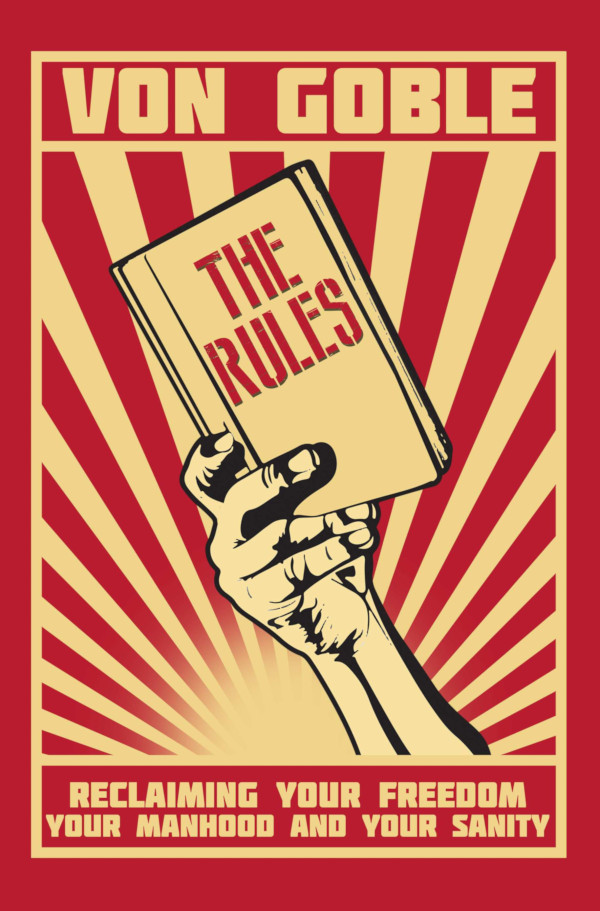(Part 4 of 6)
Louis is sitting at the piano. There isn’t much else for him to do. He could have helped his wife with the boys, but there was no point. By the time she washed and mended their clothes and sent them down to the nearest well pump with a bar of lye soap, they had gotten the drift of things, and they seemed not much inclined to challenge Louis’s clodhopping bride. He had spent a few hours out hunting, or trying to hunt, his Marlin .22 bolt-action hanging limply from its sling the entire morning. There’s nothing left to shoot.
Despite the ever-present threat of hunger, society hadn’t broken down as badly as one might have imagined. The better part of the cities had burned down, but not many refugees managed to make their way to the farmlands outside Ord, Nebraska, which suits the Ordinaries just fine.
Most of the members of the roving gangs had starved to death or been shot within a season, with the remainder having learned the hard way to steer clear of settlements of any size. A few brave and foolish adventurers had gone out searching for the City of Light, which may (or may not) be Omaha—the rumors were never clear on as much—but none had returned. So much for the bright lights and the big city. Unless, of course, Omaha really was all that. Perhaps The Big O, much like heaven, was just too great to leave.
There were a few farmers left before the darkness, even in the age of agricultural automation, and they quickly brought on a great many farmhands, quite a few of whom were driven to suicide and more of whom were worked to death. But that was all in the first year. Order returns surprisingly quickly, and the farmers, long forgotten by a world that had come to take food almost totally for granted, found themselves at the top of the societal heap—the leaders of a new order, an agri-archy, of which Elmer was a nominal member.
The piano is one of the few things that kept the Phan family off the plantations. No electricity, no iPods, no radio, no porn, no movies—Louis and his piano are one of the few sources of entertainment left, and his wife’s voice is decent, if a bit harsh, so they sing for their supper. And the wife takes in clothes for mending. They survive. Barely.
Louis looks around the room as he plays, the sound bouncing off the clean, bright white walls. He stops. Kim could play too, at least as well as Louis, but the town could only support so many musicians. So Kim was sent off for other things.
***
I don’t like eating with the others—it’s too loud, so I hide in the kitchen when I’m not carrying food. The boys ignore me, which is good. There’s so much noise here, and so much light. It’s not good. I wish the computers would come back on, but I know that won’t happen for a long time.
Mom came to visit today. Dad didn’t. Dad likes me, but I think that the old man doesn’t like me. At least the old man is quiet. But I hate the smell of cigars—too strong, and it makes me feel sick to my stomach. Mom told me that I shouldn’t complain about that. You’re a guest!
I think Mom was angry about Jack getting on the boat. Our family has been on enough boats already! And she laughs. But I don’t know what she means when she says that. Why would an angry person laugh? I’ve never been on a boat.
I’d rather stay in my tent. I’d rather be home, but I know what Mom wants me to do. I need to learn from the man—Mom told me to call him Mr. Elmer or Sir. I will try to learn. I always try for Mom and Dad, and I will try for Little Brother—Jack—as well.
I don’t think the others know why Mom and Dad brought me here. Mom told me to work and study and not talk too much. That’s okay. I don’t like talking to most people. I don’t think anyone understands what Mom says to me. They may not speak Vietnamese. They should take lessons.
I like fishing. It’s peaceful. There are lots of fish in the pond.
I hear the old man—Mr. Elmer/Sir—speaking to the boys. He’s trying to show them something. I don’t know what. My clothes are itchy. I should wash them later. No, I should try to get some sleep in the day. I’ve got work to do later.
***
Elmer isn’t crazy about the thought of trying to teach the boys how to weed and garden. It takes time. Still, Louis’s wife, brassy broad that she is, has a point—he is old. And when Elmer told the gang that those who do not work shall not eat! they demonstrated some real hustle. If they keep this up, Elmer may be able to put in a few more cabbage patches. Of course, with this many extra people around, he’ll need them: It’s a break-even proposition.
As for the lady’s payment, she found a found a pair of boots in the garage—men’s size 9.5—and they were a perfect fit. It’s no wonder Bigfoot plods along as she does. She didn’t seem crazy about the nickname. But that’s her problem, not Elmer’s: He has his fun where he can.
Elmer chuckles to himself about Bigfoot and lights his cigar. At least she has balls, and despite his gruffness, Elmer is a generous sort. Kim must have gotten her personality from her father. I wonder where . . .
“Mr. Elmer/Sir.” Was that a mouse speaking? Elmer hesitates for a second, the click clack of his Olympia falling silent. Huh, getting senile. He resumes typing.
“Sir?” the voice is louder now. Elmer looks up.
“What the . . . ” Kim is standing close, almost over Elmer. She seems to have no sense of personal space. “How’d you get in here?” That silent walking thing must be a ninja trick. Wait, wrong Asians. Or it’s a Muay Thai thing. Wait, they don’t even have . . .
“I walked through the doorway.”
“Okay, Kim, why did you walk through the doorway?”
“I wanted to get in the room.”
Elmer takes a puff of his cigar, realizing that subtlety might not be Kim’s strong suit.
“And why did you want in the room?”
“I can type.” Kim’s eyes are transfixed on the Olympia, and then she shifts them. She points towards the Vibroplex key. “Can you teach me that?”
“You mean code? Morse code?”
“Yes.” Kim’s voice is without affect. It usually is.
Elmer, thinking he may be onto something, squints at Kim,.
“Kim, why did Bigfoot, uh, your mother, send you here?’
Kim lets out an awkward laugh. Elmer has never heard her laugh before.
***
Jack spots the trees at the very edge of the horizon. He would tell the rest of the crew about it, but there is no rest of the crew to tell. There is a body—the last, worst source of calories Jack has ever had the misfortune of considering. Gotta get rid of that sooner or later. Jack is about thirty feet above the water, and a little back-of-the-envelope math suggests that the island is no more than six miles away. If Kim were around, she could spit out a more accurate number, but she isn’t. But how do I get there? Swimming that far in open water would probably be the last bad decision Jack ever made, and he can’t take a life raft either—after the big fallout (big killout might be a better description), the less murderous of the crew had decided they’d rather take their chances on the high seas. The more murderous had decided they wouldn’t let dinner get away that easily.
That day really sucked.
Anyway, no more rafts.
Nevertheless, Jack isn’t much inclined to panic. He’d survived the massacre and hadn’t killed anyone in the process—he’s rightly proud of that. He’d even managed to save one soul from perishing, but she was so petrified by the experience that she took the last remaining raft and set sail on her own. She didn’t need to, but given the carnage she’d witnessed, Jack hesitated to blame her.
Jack looks down into the waters, trying to get a sense of the direction of the current. He might not need to do anything. The ocean might do the work for him.
Where did I put that list of Castaway jokes?
***
Bigfoot and Louis are fishing, enjoying the fall sun as it warms their backs. Louis, normally somber, hadn’t been able to quit laughing when he heard of his wife’s new nickname. New? But that’s what I’ve been calling you for years, Wife. Didn’t you know?
She didn’t.
Louis has the rifle, not because Bigfoot’s temper is that bad, but because he’s gotten ill-at-ease traveling back late at night after his most recent encounter with the little hooligans, who are presently tending the tomatoes near Elmer’s cabin: That batch of hooligans was harmless enough, but the next batch might not be.
The deal between Elmer and the Phan family hadn’t originally allowed for the husband and wife to fish. That privilege was restricted to Kim alone, with the idea being that Kim would be too exhausted from farm chores and cooking to catch enough for more than a few people, whereas more poles in the water might lead to a depletion of the stock. But after much pleading and charming, Bigfoot had gotten Elmer to grant them a dispensation. Kim/Khiem was too useful for rod and reel, and Bigfoot had promised that both she and her husband would stick to catfish, for which Elmer didn’t much care, and throw back anything tastier.
Bigfoot, legs dangling from the edge of the dock, gently kicks the water with her big feet, making little waves that spread out in all directions.
“Nice weather!” A breeze picks up, and the water ripples even more. Bigfoot remembers a notebook Khiem mentioned to her. A thought dawns upon her. “Husband, how much math do you think Kim could do?”
“Uh, I don’t know, a lot, Big . . . wife.”
“I think we need to help Elmer expand his operation.”
***
I like learning code. I like sending it too. The plastic I touch—the knob—is smooth and warm, and it bounces up and down gently when I tap it. I like the tone too—it’s soft and rounded, and not at all harsh. When I wear the headphones, I can block out all the noise around me. Especially at night. Everything is quiet and calm, and I feel like I’m making friends—I’ve started to recognize different people by the rhythm of their code. Some people clump words together, some pick up and slow down, and some have their own sort of syncopation—like they’re playing jazz songs. Dad was right about music and code: They’re the same thing, almost.
People keep sending me QRS—a code that means slow down—but I don’t know why. I’ve not been learning for long, and I know I can get faster—I will get faster. I’ll get as fast as I can. Maybe they’re just lazy. I don’t know. The Q codes—QRS, QRI, QRK—I’m learning the Q codes too. I think I’ll have them all memorized in a few days.
Understanding code is easy, but some of the messages are strange to me:
Found pharmacy. Tons of good stuff. What do u need?
Wife and dog lost in fire. Dog needs proper funeral. Ha! Send money.
What is good stuff? Why is a dog’s funeral funny? But it doesn’t matter. I can send and receive messages, even if I don’t know what they mean.
I like the typewriter. It’s perfect. I think I like it better than Morse code or my old computer. The computer did strange things—sometimes it would lock up or reboot—and the other people on the relay net seem a little confused by me, but they’re friends, so that’s okay. But the typewriter does exactly what I want it to do. It never locks up. It never dies. It never tells me I’m going too fast. It’s always there. It always works, except when I have to change the ribbon or the paper. But that’s not bad. Mr. Elmer is going to show me how to make ink for the typewriter ribbon. I think making ink sounds fun. He and the other operators are going to award me my own call sign soon, and I won’t need to keep using Mr. Elmer’s. I don’t know what it’ll be. I hope they let me pick my own.
Mr. Elmer tells me I need to stop and eat, and I do, but I’d rather not. Cooking seems boring now. Food is boring too.
This is the happiest I’ve ever been. I’m happier than I was before the big green storm.
Return next week for Part V, or buy Foresight (and Other Stories) today.


The Rules
The Rules is a philosophy and self-inquiry text designed to help readers develop mental discipline and set life goals. It does this by way of guided readings and open-ended questions that facilitate the rational and systematic application of each Rule.
Put another way: The Rules is a book designed to help men survive and thrive in the West.
Foresight (And Other Stories)
Four tales across time and distance. Always satirical and frequently dark, this collection considers the breadth of isolation and the depth of connection.
Brant von Goble is a writer, editor, publisher, researcher, teacher, musician, juggler, and amateur radio operator.
He is the author of several books and articles of both the academic and non-academic variety. He owns and operates the book publishing company Loosey Goosey Press.








